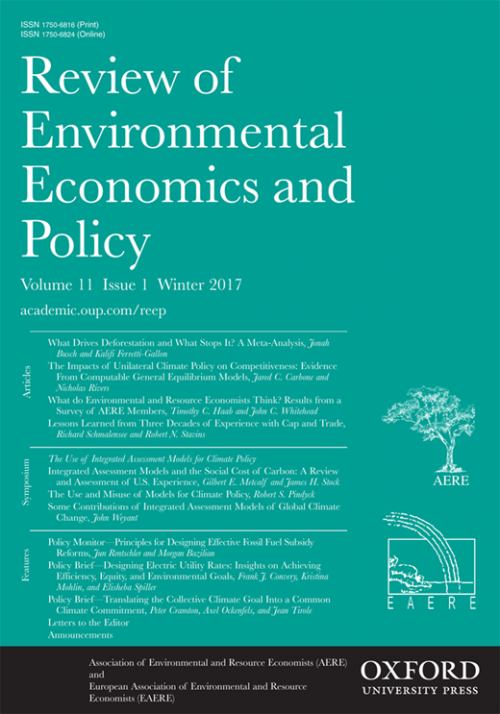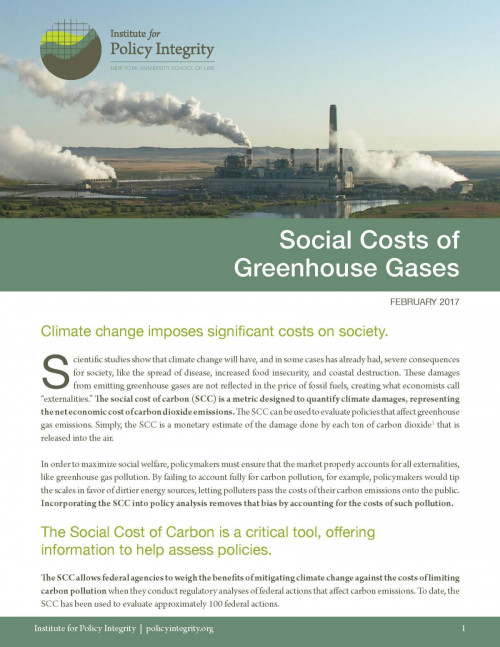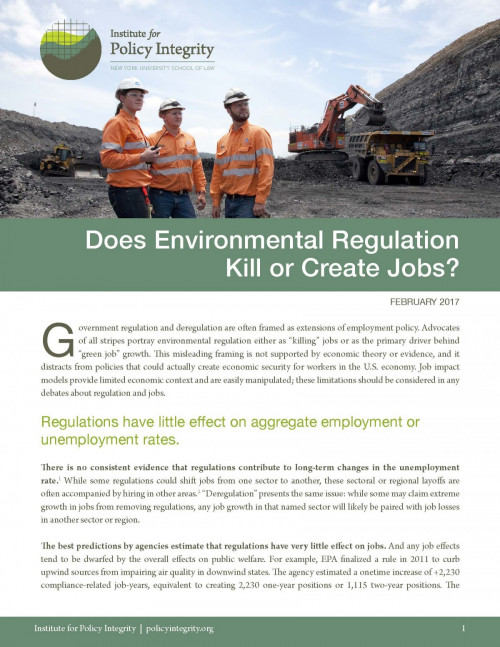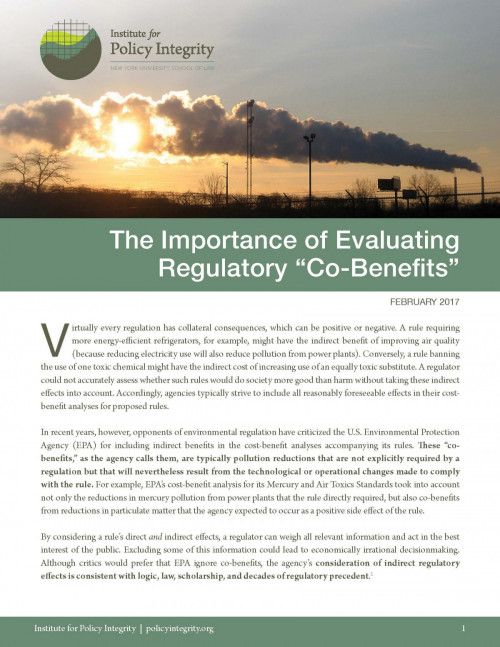-
California Air Resources Board – Comments on the 2017 Scoping Plan Update
We recently submitted a second set of comments to the California Air Resources Board on its 2017 Climate Change Scoping Plan Update. These comments build on those we submitted in December to ARB on the discussion draft of the scoping plan.
-
Department of Commerce – Comments on Manufacturing and Regulation
We recently submitted comments to the Department of Commerce in response to its request for information on the impact of federal regulations on domestic manufacturing. The DOC requested comments on ideas for retrospective review of permitting and regulatory requirements, with a focus on repealing existing “burdensome” requirements. The agency also sought information about the potential adverse impacts of regulations on manufacturing.
-
Reply Comments on California Distributed Energy Resources Policy
The California Public Utilities Commission proposed using a Societal Cost Test to help select the combination of distributed energy resource projects that will result in the greatest net benefits to society. We counter the feedback that some stakeholders gave on implementing this approach in our reply comments. We argue that the Commission should: (1) expand its discussion of the legal basis for applying a societal cost test that includes a full range of externalities; (2) use the damage cost approach to determine the value of greenhouse gas abatement, rather than the proposed abatement cost approach; and (3) apply a societal discount rate to the analysis.
-
Comments on California’s Evaluation Methods for Distributed Energy Resources
We recently submitted comments to the California Public Utilities Commission (CPUC) on their proposal to develop a more robust societal cost test to evaluate the cost-effectiveness of distributed energy resources (DERs). California has been a national leader in addressing the challenges associated with DER integration, and this proceeding will help the state to reform their cost-effectiveness framework.
-
Toxic Substances Control Act Comments
We recently submitted two sets of comments to the Environmental Protection Agency (EPA) on issues related to the implementation of the recently amended Toxic Substances Control Act (TSCA). The first comment letter focuses on EPA’s proposed restrictions on the manufacture, processing, and distribution of trichloroethylene (TCE) for use in aerosol degreasing and in spot cleaning in dry cleaning facilities. Our second comment letter focuses on EPA’s proposed process for conducting future risk evaluations under the amended TSCA.
-
Comments on California’s Clean Cars Program
We recently submitted comments on the California Air Resource Board’s (ARB’s) Midterm Review of its Advanced Clean Cars program, which sets pollution limits and zero-emissions vehicle targets for automobiles sold in California. California is unique among the states in that the Clean Air Act allows it to seek a waiver from EPA to set its own automobile emission targets, which other states can then adopt.
-

The Social Cost of Carbon: A Global Imperative
To solve the unprecedented global commons problem posed by climate change, all nations must internalize the global externalities of their emissions. If not, collective efforts will never achieve an efficient, stable climate outcome. The United States’ practice of looking at the global impact of emissions has come under attack in courtrooms and academic journals, with some arguing that the U.S. should instead consider only the domestic impacts of climate change in its decisionmaking.
In a letter published in Review of Environmental Economics and Policy, we argue that federal agencies should continue to use a global number for Social Cost of Carbon, as developed by the Interagency Working Group on Social Cost of Carbon. First, the United States benefits tremendously if other countries set policy based on global rather than local effects. From a legal perspective, not only does international law—the U.N. Framework Convention on Climate Change—commit the United States to account for global effects, but domestic laws like the Clean Air Act and the National Environmental Policy Act also either require or give discretion to agencies to consider global climate costs. Many seemingly “foreign” climate damages would actually spill over to harm the United States.
-

Social Costs of Greenhouse Gases
Scientific studies show that climate change will have, and in some cases has already had, severe consequences for society, like the spread of disease, increased food insecurity, and coastal destruction. The social cost of carbon (SCC) is a metric designed to quantify climate damages, representing the net economic cost of carbon dioxide emissions. Our issue brief on the Social Cost of Carbon details how this metric was developed and how it applies to federal regulatory policy.
-

Does Environmental Regulation Kill or Create Jobs?
Our issue brief on Jobs and Environmental Regulation addresses rhetoric on “job-killing regulations,” describing the lack of consistent evidence that regulations lead to long-term changes in the unemployment rate. It also provides information on how to analyze claims about job impacts.
-

The Importance of Evaluating Regulatory “Co-Benefits”
Our issue brief on Regulatory Co-Benefits analyzes the importance of using unbiased economic analysis to consider all direct and indirect costs and benefits of any environmental safeguard.

